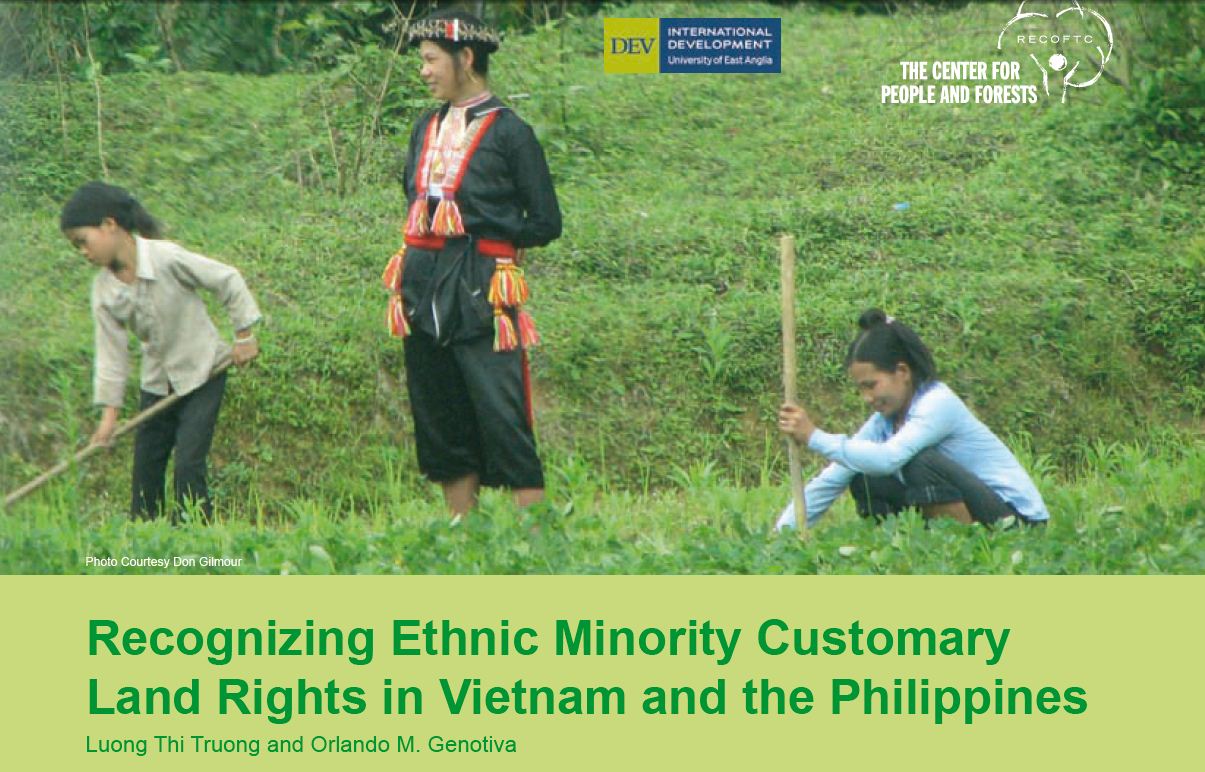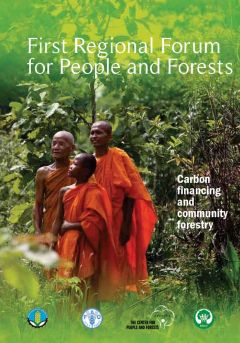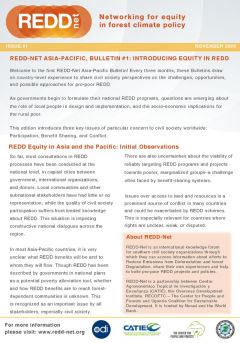Location
RECOFTC
RECOFTC is derived from an abbreviated form of the organization's legal name, Regional Community Forestry Training Center for Asia and the Pacific. Formerly the organization was known as RECOFTC – The Center for People and Forests.
RECOFTC – The Center for People and Forests is an international not-for-profit organization that focuses on capacity building for community forestry in the Asia Pacific region. It advocates for the increased involvement of local communities living in and around forests - some 450 million people in Asia-Pacific - in the equitable and ecologically sustainable management of forest landscapes.
The Regional Community Forestry Training Center for Asia and the Pacific (RECOFTC) opened in Bangkok, Thailand, in March 1987 with support from the United Nations Food and Agriculture Organization, the Government of Switzerland (through the Asian Development Bank), and Thailand's Kasetsart University.
Community forestry is widely acknowledged as a powerful solution for many of the challenges facing local people and the wider society, especially in improving rural livelihoods, enhancing community governance and empowerment, transforming forest-related conflict, protecting and enhancing the environment, and helping to fight climate change. As a capacity-building organisation, RECOFTC improves the ability of people and organisations to conduct community forestry effectively and sustainably.
RECOFTC works toward its mission through four thematic areas:
- expanding community forestry
- people, forests and climate change
- transforming forest conflict
- securing local livelihoods.
Members:
Resources
Displaying 401 - 405 of 485Recognizing Ethnic Minorities Customary Land Rights in Vietnam and the Philippines
Most ethnic minorities in Vietnam such as the Vietnamese-Thai, Tay, Nung, Hmong, Muong and Dao have a special relationship with the land, elements and other living creatures. This relationship goes beyond mere economic interests to cultural and spiritual connections to the places they have inhabited for generations.
People and Forests Forum: Carbon Financing and Community Forestry
Hosted in Hanoi, Vietnam, from 18 to 20 August 2009, the First Regional People and Forests Forum on Carbon Financing and Community Forestry brought together more than 80 people from 12 countries, including key government, civil society, private sector, and international organization participants. During the three days, participant learning and discussion was stimulated through case study and topical presentations, expert panel discussions, a film viewing, group work sessions, and a field visit to Vietnam’s only afforestation/reforestation Clean Development Mechanism (A/R CDM) site.
People and Forests Forum: Carbon Financing and Community Forestry
Hosted in Hanoi, Vietnam, from 18 to 20 August 2009, the First Regional People and Forests Forum on Carbon Financing and Community Forestry brought together more than 80 people from 12 countries, including key government, civil society, private sector, and international organization participants. During the three days, participant learning and discussion was stimulated through case study and topical presentations, expert panel discussions, a film viewing, group work sessions, and a field visit to Vietnam’s only afforestation/reforestation Clean Development Mechanism (A/R CDM) site.
Decoding REDD: Forest Restoration in REDD+
The Bali Action Plan identified two key areas for the forest sector to contribute significantly to global climate change mitigation. One area concerned approaches and incentives relating to reducing emissions from deforestation and forest degradation in developing countries (REDD). The second area focused on the role of conservation, sustainable management of forests and enhancement of forest carbon stocks in developing countries. REDD+ has become synonymous for a combination of these two areas.
REDD-Net Asia-Pacific Bulletin #1: Introducing Equity in REDD
This bulletin draws on country-level experience to share civil society perspectives on the challenges, opportunities, and possible approaches for pro-poor REDD. As governments begin to formulate their national REDD programs, questions are emerging about the role of local people in design and implementation, and the socio-economic implications for the rural poor. Drawing on experiences from Nepal and Vietnam, this bulletin includes:





